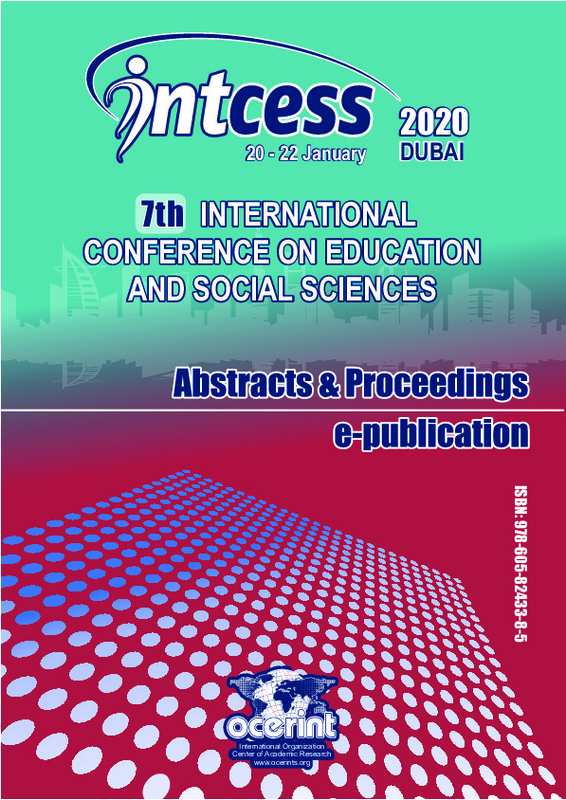JavaScript is disabled for your browser. Some features of this site may not work without it.
Buscar en RiuNet
Listar
Mi cuenta
Estadísticas
Ayuda RiuNet
Admin. UPV
Active circular evaluation methodology tests
Mostrar el registro sencillo del ítem
Ficheros en el ítem
| dc.contributor.author | Fenollar, Octavio
|
es_ES |
| dc.contributor.author | Sanchez-Nacher, Lourdes
|
es_ES |
| dc.contributor.author | Lascano-Aimacaña, Diego Sebastián
|
es_ES |
| dc.contributor.author | Torres Giner, Sergio
|
es_ES |
| dc.contributor.author | Ivorra-Martínez, Juan
|
es_ES |
| dc.date.accessioned | 2022-01-19T09:17:32Z | |
| dc.date.available | 2022-01-19T09:17:32Z | |
| dc.date.issued | 2020-01-22 | es_ES |
| dc.identifier.isbn | 978-605-82433-8-5 | es_ES |
| dc.identifier.uri | http://hdl.handle.net/10251/179929 | |
| dc.description.abstract | [EN] In recent years the concept of evaluation has reached a significant transformation. The traditional concept of evaluation as a final act has been replaced by a concept of evaluation as something intrinsic to the learning process, creating interactive and circular relationships between learning and evaluation. The methodology proposed in this work is to consider evaluation as an intermediate act in the learning process. The student obtains a feed-back of what their level of knowledge is and has the possibility of implementing strategies to achieve a higher level of knowledge in order to complete their learning process. In this first phase, the written evaluation test is not different from the traditional one. These will be questions based on the knowledge acquired, not limited to answers that can be memorized in a mechanical way. This test will be scored according to the usual correction criteria, and students will be notified. But they can¿t see the exam solved and they don¿t have the questions form. They must try to remember the questions and they have the possibility of share the questions remembered with other students, fomenting working group. After two weeks, another written test is carried out, which we will call active circular evaluation. The written test has the same number of questions, and the questions are essentially the same, with small variations, where the students must demonstrate that they have acquired and assimilated the knowledge. The student must be able to identify the mistakes by his own made in the first test, and be able to correct the mistakes in this second test. We can conclude, after test the methodology in a 30 students group, that in general this methodology is positive for the vast majority of the group. Only two people have not overpass the score of their initial test, so in general the result has been satisfactory. | es_ES |
| dc.language | Inglés | es_ES |
| dc.publisher | OCERINT | es_ES |
| dc.relation.ispartof | E-PUBLICATION Abstracts & Proceedings | es_ES |
| dc.rights | Reserva de todos los derechos | es_ES |
| dc.subject | Learning | es_ES |
| dc.subject | Skills | es_ES |
| dc.subject | Training | es_ES |
| dc.subject | Methodology | es_ES |
| dc.subject | Evaluation | es_ES |
| dc.subject.classification | CIENCIA DE LOS MATERIALES E INGENIERIA METALURGICA | es_ES |
| dc.subject.classification | TECNOLOGIA DE ALIMENTOS | es_ES |
| dc.subject.classification | INGENIERIA DE LOS PROCESOS DE FABRICACION | es_ES |
| dc.title | Active circular evaluation methodology tests | es_ES |
| dc.type | Comunicación en congreso | es_ES |
| dc.type | Capítulo de libro | es_ES |
| dc.rights.accessRights | Abierto | es_ES |
| dc.contributor.affiliation | Universitat Politècnica de València. Instituto de Tecnología de Materiales - Institut de Tecnologia de Materials | es_ES |
| dc.contributor.affiliation | Universitat Politècnica de València. Instituto Universitario de Ingeniería de Alimentos para el Desarrollo - Institut Universitari d'Enginyeria d'Aliments per al Desenvolupament | es_ES |
| dc.contributor.affiliation | Universitat Politècnica de València. Departamento de Ingeniería Mecánica y de Materiales - Departament d'Enginyeria Mecànica i de Materials | es_ES |
| dc.description.bibliographicCitation | Fenollar, O.; Sanchez-Nacher, L.; Lascano-Aimacaña, DS.; Torres Giner, S.; Ivorra-Martínez, J. (2020). Active circular evaluation methodology tests. OCERINT. 1179-1182. http://hdl.handle.net/10251/179929 | es_ES |
| dc.description.accrualMethod | S | es_ES |
| dc.relation.conferencename | 7th International Conference on Education and Social Sciences (INTCESS 2020) | es_ES |
| dc.relation.conferencedate | Enero 20-22,2020 | es_ES |
| dc.relation.conferenceplace | Dubai, UAE | es_ES |
| dc.relation.publisherversion | https://www.ocerints.org/intcess20_e-publication/ | es_ES |
| dc.description.upvformatpinicio | 1179 | es_ES |
| dc.description.upvformatpfin | 1182 | es_ES |
| dc.type.version | info:eu-repo/semantics/publishedVersion | es_ES |
| dc.relation.pasarela | S\405462 | es_ES |






